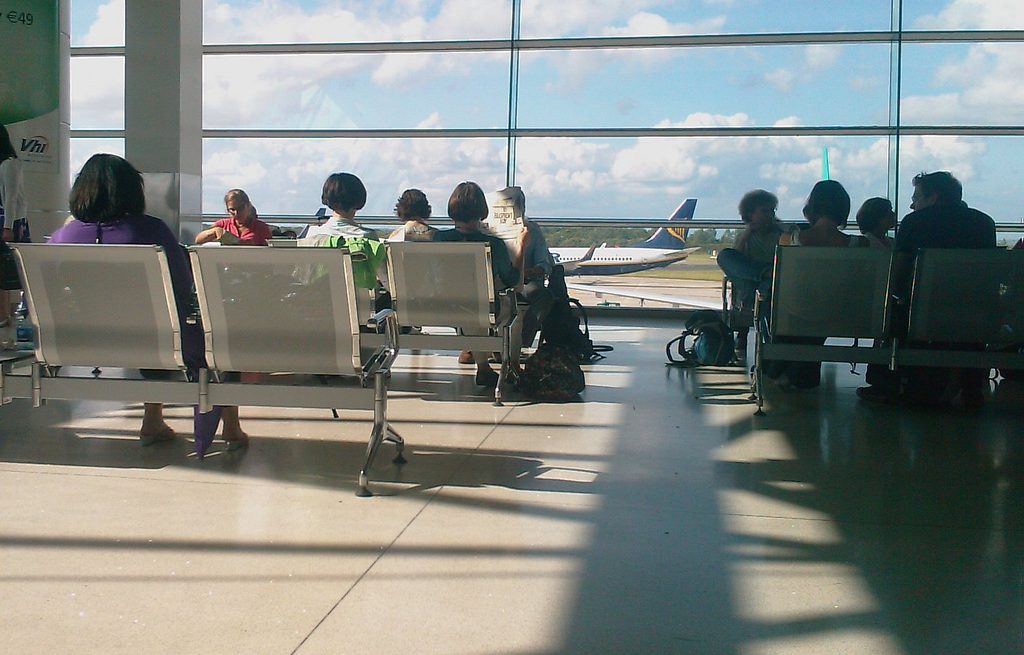
In a major concession for Italian-based Ryanair cabin crew, airline executives have agreed to offer local employment contracts governed under Italian law. At present, Ryanair employs staff at bases across Europe but they are all employed under Irish contracts where the airline is headquartered. In the past, the airline has refused to offer local contracts, fearing they would “impact” costs and increase the “complexity” of its business model.
The thinking is simple – Irish employment law isn’t quite as stringent as what you’ll find in some European countries. Local contracts could potentially give workers, including cabin crew, more rights and the ability to have disputes heard in a local court where unions think judges will be more sympathetic than under the Irish system.
Of course, what Ryanair has been doing is perfectly legal although perhaps morally dubious. While the airline has lots of bases in different countries, all of its aircraft are registered in Ireland – so it says it has to employ staff under Irish law. Recent court cases in several countries, however, have put that thinking in doubt.
Ryanair and the unions who represent cabin crew appeared to be at loggerheads on this issue and it was unclear how it would be resolved. After all, unions in five countries – Belgium, Portugal, the Netherlands, Spain and Italy – yesterday announced a 24-hour strike which will be held on 28th September unless the airline offers local contracts (amongst other demands).
The latest industrial action follows previous strikes which resulted in thousands of flights being cancelled over the summer. In the past, Ryanair and its chief executive, Michael O’Leary have said they would weather any strike action if it meant keeping Irish-based employment contracts.
So this latest news is pretty huge – In separate statements from Ryanair and a quartet of Italian Unions (Fit Cisl, ANPAC and ANPAV) – it has been confirmed that the airline will now offer local contract’s under Italian law for cabin crew based in the country.
The agreement which forms part of a tentative Collective Labour Agreement currently only applies to directly employed Ryanair crew but the airline has also agreed to transfer many agency crew onto the direct employment contract. The main points of the deal include:
- A three-year collective labour agreement
- A transition from Irish contracts to full Italian employment contracts
- Direct employment to be significantly increased from 1st November
- More opportunity for agency workers to get contracts directly with Ryanair
- Introduce an Italian-based pension scheme
In addition, Ryanair is expected to significantly improve pay and conditions under a new remuneration structure which will see workers receiving their pay in local bank accounts for the first time.
As you may have already noticed, some cabin crew in Italy will still be going on strike on 28th September – they are members of a fifth union which has not agreed a deal with the airline.
“We expect to sign this first CLA for our Italian cabin crew before the end of September, which will lead to significant pay improvements and other benefits for our Italian based cabin crew,” explained Eddie Wilson, Ryanair’s head of human resources.
“This agreement is a further sign of the significant progress Ryanair is making in reaching agreements with our people and their unions in different EU countries.”
Later this month, the airline will be holding its annual general meeting in Dublin. Shareholders have come under pressure from activists about work conditions at the airline in the run-up to the AGM. Michael O’Leary has now reportedly banned any members of the media from attending the event.
Mateusz Maszczynski honed his skills as an international flight attendant at the most prominent airline in the Middle East and has been flying ever since... most recently for a well known European airline. Matt is passionate about the aviation industry and has become an expert in passenger experience and human-centric stories. Always keeping an ear close to the ground, Matt's industry insights, analysis and news coverage is frequently relied upon by some of the biggest names in journalism.







